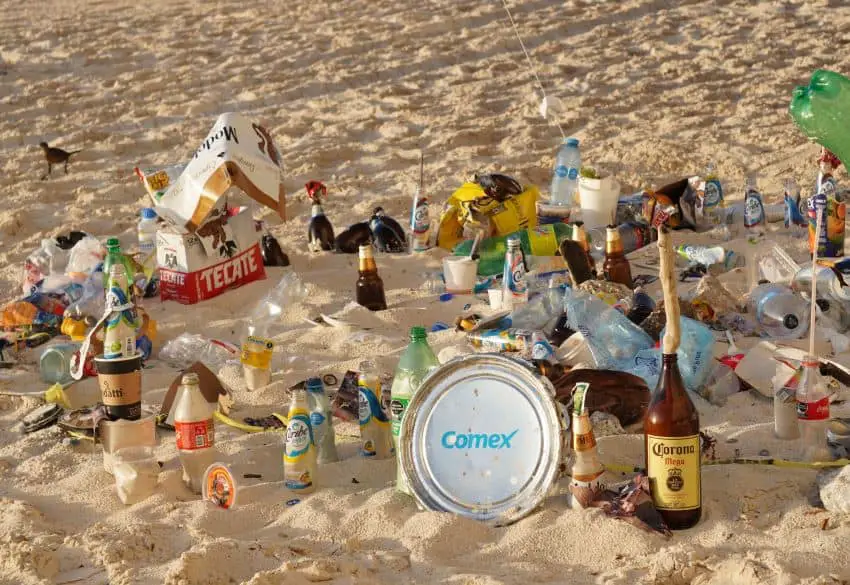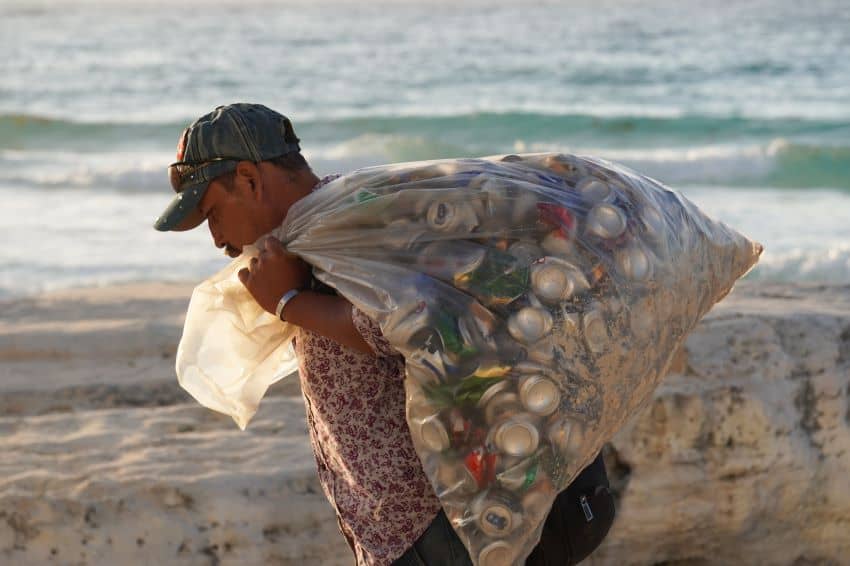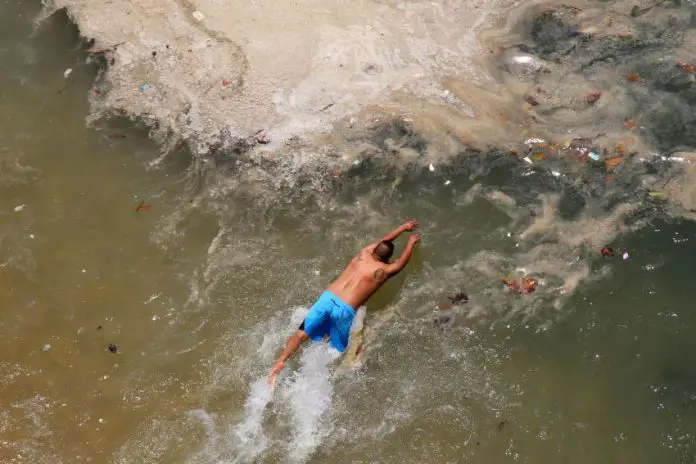Our little town of Chacala recently experienced a waste crisis when the trash pickup service stopped for several weeks. The landfill that usually accepts our garbage had caught on fire — the second time this year — and couldn’t take more waste until it was under control. Piles of trash accumulated on every street corner. Rotting food, plastic bags and bottles, styrofoam containers, soiled toilet paper, and other unmentionables were strewn everywhere.
The county government provided no alternate plan for trash removal, leaving the community on its own to figure out a solution. Several Chacaleños rallied to pay for dump trucks to haul trash away, at a cost of tens of thousands of pesos.

The crisis got me thinking about just how much trash is left behind on Mexico’s beaches, how waste removal is handled (and mishandled), who is responsible, and how we can all do a better job reducing waste, especially tourists.
Tourists often complain about how much litter is on Mexico’s beaches and assume that local Mexicans are primarily responsible. This is not only condescending and harmful cultural stereotyping, it couldn’t be further from the truth. Foreign tourists and out-of-area visitors contribute far more waste than locals, putting extreme pressure on communities to keep beaches clean with little to no government support.
Take Chacala as an example, our resident population is about 500 people. But on any given weekend or holiday, we can see our population quadruple to 2,000 people or more. Mondays are the worst day to walk the beach after everyone has gone and the evidence is left behind – styrofoam plates, plastic cups and bottles, dirty diapers, plastic bags, cigarette butts – you name it. While plenty of people use the trash cans provided, there is simply too much waste for them to hold.
And when the garbage cans are overflowing, it falls on community members and local business owners to organize volunteers to clean up or pay someone to collect it, all at their own time and expense.

Instead of complaining about trash, here are some ideas for visitors to help keep beaches clean:
- Separate your trash: Much of the waste people generate is recyclable or biodegradable. You can reduce the amount of waste that ends up in landfills by separating recyclables and food waste from other trash. Many beach towns have receptacles or collection centers for recyclables and organics.
- Bring reusable shopping bags: This is already common practice in many parts of the world, but for some reason, when people go on vacation, they seem to forget. When you travel, pack your good habits and a few reusable bags with you. Or buy some bags here. Mexico has one of the longest reusable market bag traditions in the world.
- Buy more whole foods: Fill those reusable bags with fresh fruit, vegetables, bread, tortillas, and other goods that can be bought locally and don’t come in plastic packaging.
- Bring a plate to taco stands: No one can resist the temptation of a street taco, but you can resist being given a styrofoam plate to eat it on. Next time you have a hankering for a taco, leave no trace and bring your plate (and cloth napkin) with you.
- Order drinks that come in returnable bottles: Skip beverages that come in plastic bottles and choose ones that come in returnable glass bottles or are made fresh in large batches like aguas frescas that are served in glass cups or clay mugs.
- Bring a to-go container to restaurants: If your eyes are bigger than your stomach and you often have leftovers when eating out, make sure to bring a reusable container to bring leftovers home instead of having the restaurant put them in a styrofoam box.
- Patronize businesses that reduce waste: It’s becoming more common in Mexico (and in some cities, it’s the law) to not use disposable plates, bags, and other items at shops and restaurants, and opt for natural and biodegradable products. (We have a local ice cream shop in Chacala that uses coconut husks as bowls!) Seek out and patronize those businesses that are taking action to reduce waste.
- Put trash in cans with lids: Leaving trash in bags on the street attracts dogs that scatter it around and leave a mess. Put trash in a can with a lid, and if your hotel or rental doesn’t have one, be a champ and buy one for them.
- Collect trash while walking the beach: Since you are likely to walk the beach anyway, why not bring a trash bag with you and pick up some litter along the way?
- Donate to local limpieza efforts: The community you are visiting most likely has an environmental committee or limpieza campaign that is working to educate the public and raise money for waste removal, reduction, and recycling efforts. Ask around and find the groups in your community you can support.
This goes without saying, but companies that produce throw-away products are the real culprits of the world’s waste problem, not consumers. We are pressured to make better choices, and that certainly helps, but it’s corporations that need to be responsible for the life cycle of their products. As a society, we must continue to advocate for laws that hold companies accountable for the waste they produce, and as consumers, we must stop supporting companies that contribute to the problem.
Debbie Slobe is a writer and communications strategist based in Chacala, Nayarit. She blogs at Mexpatmama.com and is a senior program director at Resource Media. Find her on Instagram and Facebook.
